| |

|
DeLoG NEWSLETTER
No. 53 – 01/2021
|
|

|
| |
|
|
| |
Dear Reader,
welcome to issue No. 53 of the DeLoG Newsletter which showcases the Network’s and its members and partners most recent activities and offers an overview of current news stories, upcoming events and courses. In addition, it includes a carefully curated selection of recent DLG publications related to DeLoG’s core topics: - fragility, post-conflict settings and migration,
- fiscal decentralisation and local finance,
- localising the 2030 Agenda and
- urban and territorial governance.
In our “In-Profile” section, we introduce you to Kelmend Zajazi from NALAS (Network of Associations of Local Authorities of South-East Europe), one of DeLoG’s newest members since the Network’s Annual Meeting in July. As NALAS’ focal point for DeLoG, Kelmend shares his perspective on the role that decentralisation plays for the organisation’s work, while also offering insights into the regional context of South-Eastern Europe. In his interview, Kelmend discusses NALAS’ Strategy for Local Government Associations (LGAs) 2018-2022, subnational governments’ role in managing the COVID-19 crisis and lessons learned from NALAS’ recent COVID-19 survey. Learn even more by checking out his interview below.
To round off the year DeLoG hosted two well-attended online meetings in December. Together with the Swiss Development Cooperation (SDC), VNG International and GIZ the first webinar on "Decentralisation and Local Governance in Authoritarian Contexts” provided insights into development cooperation challenges for local government projects in fragile governance conditions. The second webinar with Cities Alliance and Women in Informal Employment: Globalizing and Organizing (WIEGO) focussed on how to address “Informality in Cities Through Inclusive Urban Governance”. Closely related to DeLoG’s workstreams, a recording and report for both webinars can be found on the DeLoG Homepage.
Making the most of the start of a new year, various DeLoG members and partners have launched new platforms, progress reports and work plans. In addition, several pilot projects and calls for best practices for a sustainable COVID-19 recovery at the local and regional level have been launched and are open for applications. With the High-level Political Forum (HLPF) scheduled for July 2021, various organisations have shared their Voluntary Local Reviews (VLRs) as well as guidelines. Be inspired by these useful resources in our “News from our Members and Partners” and our “Additional News” sections.
We hope you will enjoy this issue and encourage you to forward our Newsletter to others interested in Decentralisation and Local Governance.
All the Best and stay healthy!
Your DeLoG Team
Contact: info@delog.org |
|
|

© Kelmend Zajazi
|
|
In-Profile – Kelmend Zajazi, Network of Associations of Local Authorities of South-East Europe (NALAS)
Kelmend Zajazi has served as the Executive Director of the Network of Associations of Local Authorities of South East Europe (NALAS) for over ten years. Through cooperations with 14 Local Government Associations (LGAs) from 12 economies NALAS is able to represent the interests of 9,000 municipalities. Prior to his time at NALAS Mr. Zajazi managed a number of USAID’s programmes, including USAID’s “Local Government Reforms Project”, the “Make Decentralization Work in Macedonia” project as well USAID’s “Democracy Network Program for Civil Society Development”. Moreover, he has served as an Advisor to the Minister of Health of Macedonia and has worked with the European Commission Humanitarian Aid Office. Kelmend Zajazi is a Medical Doctor and holds a master’s degree in Public Policy and Management from the University of Pittsburgh, USA.
In his interview he provides us with insights into NALAS work, discusses their strategy for Local Government Associations (LGAs) 2018-2022, subnational governments’ role in managing the COVID-19 crisis and lessons learned from NALAS’ recent COVID-19 survey.
|
| |
|
|
| |
|
|
|
|
|
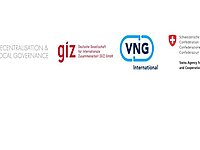
© DeLoG Secretariat/ GIZ GmbH/ VNGi/ SDC
|
|
DeLoG Webinar with SDC, VNG International and GIZ on "Decentralisation and Local Governance in Authoritarian Contexts" – Report Now Available
On the 10th of December 2020 the DeLoG Secretariat in cooperation with the Swiss Development Cooperation (SDC), VNG International and the German Development Cooperation (GIZ) jointly conducted a webinar to discuss strategies, entry points and potential risks of working with local governments in authoritarian contexts. The inputs for the webinar were given by Melina Papageorgiou, Thematic Advisor Governance, SDC, Channisai Muong, Programme Officer Governance, Swiss Cooperation Office and Swiss Consular Agency for Cambodia, Volkert Doop, Project Manager, VNG International, and Dr. Armin Nolting, Head of Advisory Project Governance, GIZ. Overall, the webinar was attended by 74 participants from around 23 countries. Due to the webinar’s sensitive topic, it was not recorded. A brief report on its content can however be accessed on DeLoG’s homepage.
|
| |
|
|
| |
|
|
|
|
|
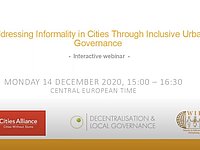
© DeLoG Secretariat/ Cities Alliance/ WIEGO
|
|
Recording of DeLoG, Cities Alliance and WIEGO Webinar on "Addressing Informality in Cities Through Inclusive Urban Governance" now available
On the 14th of December 2020 the DeLoG Secretariat, Cities Alliance and Women in Informal Employment: Globalizing and Organizing (WIEGO) jointly conducted a webinar on "Addressing Informality in Cities Through Inclusive Urban Governance". The inputs for the webinar were given by Christine Mwelu Mutuku, Community Organiser and Federation Leader at Slum Dwellers International (SDI) from Kenya, Sonia Maria Dias, Waste Specialist at WIEGO and Giulia Maci, Urban Specialist at Cities Alliance. Overall, the webinar was attended by 52 participants from around 25 countries. The recording of the webinar is now available on DeLoG’s homepage.
|
| |
|
|
| |
|
|
|
|
|
News from our Members and Partners
|
|
|

© CGLU Afrique / UCLG Africa
|
|
Call to Join the Campaign of African Cities in Favour of the Economic Empowerment of Women Extended
The Network of Locally Elected Women of Africa (REFELA) has extended its Call for Expressions of Interest to join the campaign of “African cities for the economic empowerment of women” until February 28th, 2021. REFELA’s work is dedicated to fostering female leadership in African cities and local communities as well as the implementation of local policies and strategies in Africa. The campaign is part of its triennial agenda (2019-2021) and addresses leaders and councils of African cities and local authorities.
|
| |
|
|
| |
|
|
|
|
|
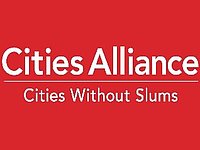
© Cities Alliance
|
|
Projects from the Greater Horn of Africa and Bay of Bengal Selected for Cities Alliance "Stronger Partnerships: Local Innovations for New Climate Realities in Cities" Initiative
Funded by the Swedish International Development Cooperation Agency (Sida) and supported by the German Federal Ministry for Economic Cooperation and Development (BMZ) as well as the Swiss State Secretariat for Economic Affairs (SECO), the initiative supports the development of local level adaptive solutions to climate change. Part of Cities Alliance “Climate Change, Resilience and Informality in Cities Project”, the current project recipients are based in Myanmar, Kenya, Somalia, Bangladesh and Uganda. Focused on advancing the cooperation between local communities and local authorities, the projects aim to connect local knowledge to the legal mandates of local governments, therefore enabling interventions that match experienced realities and identifying new approaches. Project-based resources are provided and updated regularly.
|
| |
|
|
| |
|
|
|
|
|
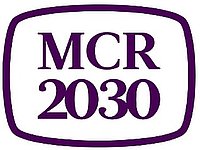
© UNDRR
|
|
Core Partners of Making Cities Resilient 2030 (MCR2030) Officially Launch Second Phase
Scheduled to run from January 2021 to the end of 2030, Making Cities Resilient 2030 (MCR2030), a global programme originally launched at Daring Cities, has officially commenced its second project phase. With organisations like ICLEI, UCLG, UN-HABITAT and the World Bank as core partners, MCR2030 draws on a three-stage resilience roadmap to make cities more inclusive, safe, resilient and sustainable by 2030. MCR2030 therefore not only contributes to the implementation of the Sustainable Development Goal 11, but also to international agendas like the Sendai Framework for Disaster Risk Reduction, the Paris Agreement and the New Urban Agenda.
|
| |
|
|
| |
|
|
|
|
|
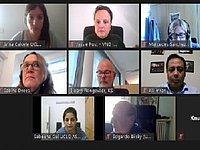
© UCLG-CIB
|
|
UCLG GOLD Team and CIB Kick-Off SDG Reporting Process for HLPF 2021
Following a virtual meeting in October, the UCLG GOLD Team and CIB commenced their SDG Reporting process in the context of their annual report for the upcoming HLPF 2021. Before launching their preparations for 2021, the UCLG Team sought reflection and input on the reporting process from a group of its members. Discussing different monitoring and reporting strategies as well as possible entry points for Local and Regional Governments, the exchange focussed on sub-national reporting.
|
| |
|
|
| |
|
|
|
|
|

© UCLG
|
|
UCLG Advocates for Municipalism to Build Back Better
Recognising COVID-19 as an historic opportunity to advocate for stronger investments in municipalism, UCLG has recently issued a short video to demonstrate the progress made since its World Congress in Durban in 2019. The video underscores that the municipal movement is ready to step up stronger than ever in these unforeseen times and reaffirms UCLG’s loyalty to the principles of decentralisation and municipalism in order to connect local actions to global trends while leaving no one behind.
|
| |
|
|
| |
|
|
|
|
|
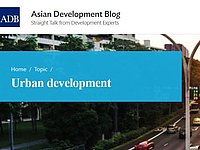
© Asian Development Bank
|
|
Asian Development Blog – Urban Development
Featuring a number of different authors, the Asian Development Bank’s Blog on Urban Development offers access to articles on current issues in the field of urban development like inequality, the impact of COVID-19 and climate governance. Focussing on the Asia Pacific region the articles are mainly available in English with some being translated into Chinese as well.
|
| |
|
|
| |
|
|
|
|
|
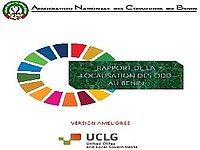
© UCLG-GOLD
|
|
Report on the Localisation of the SDGs in Benin (in French)
With support from UCLG, Benin has recently published its first Voluntary Subnational Review (VSR). The West African State is now part of a growing number of countries that are contributing to the Voluntary National Reviews (VNRs) process by publishing their advancements at the subnational or local level. Based on the lessons learned and the review results obtained through the VSR the subnational actors involved in its development were able to formulate concrete recommendations tailored to the needs of different stakeholders at all levels.
|
| |
|
|
| |
|
|
|
|
|
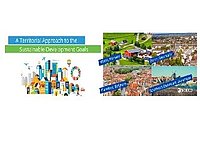
© OECD
|
|
OECD Publishes Regional Development Working Papers
OECD’s Regional Development Policy Division has developed a comprehensive collection of working papers covering issues such as urban and rural governance as well as economics, including regional statistics and analysis. Besides giving insight into these topics in the context of a territorial approach to the Sustainable Development Goals (SDGs), these papers offer concrete examples of integrated approaches to international agendas in the form of country-specific reports.
|
| |
|
|
| |
|
|
|
|
|
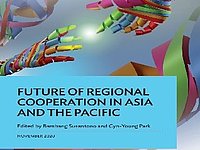
© Asian Development Bank
|
|
ADB Publishes New Book on the “Future of Regional Cooperation in Asia and the Pacific”
Recently published by the Asian Development Bank (ADB) this book draws on contributions by ADB staff as well as prominent scholars to assess how challenges in the field of public goods, trade and investment, financial cooperation and regional health are being tackled through regional cooperation and integration. The collected papers review these processes and their potential to attain a more sustainable and inclusive future as well as building resilience in the region.
|
| |
|
|
| |
|
|
|
|
|

© OECD
|
|
OECD Launches Pilot Reports on City Approaches to the SDGs
As part of its Territorial Approach to the SDGs programme the Organization for Economic Co-operation and Development (OECD) recently published two pilot reports on Bonn (Germany) and Kópavogur (Iceland). The reports incorporate recommendations for key actions tailored to the city-specific challenges and priorities while aiming to co-create more resilient cities and regions through local stakeholder engagement. The insights of both reports were fed into discussions at the “Third OECD Roundtable on Cities and Regions for the SDG” to highlight how the SDGs can contribute to shaping and implementing COVID-19 recovery strategies in cities and regions.
|
| |
|
|
| |
|
|
|
|
|
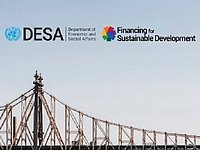
© UN DESA
|
|
UN Online-Workshop on Infrastructure Asset Management is Now Open For Registration
This unique online workshop by UN DESA and UNCDF on Infrastructure Asset Management will take place from February to April in form of a 3-part virtual workshop series, divided by regions. As part of the UN Online Solutions Dialogues (OSDs), the workshops offer participants a lively and collaborative environment and address local and regional government officials in developing countries, as well as central government representatives and partners alike. Each two-day workshop encompass short live and video lectures, interactive exercises and time to reconvene and discuss in the plenary. The objective of the workshop is to raise awareness and create a common understanding of asset management at local and national level. The content of the OSDs will largely draw on the upcoming UN/DESA-UNCDF publication Managing Infrastructure Assets for Sustainable Development: A Handbook for Local and National Governments, which will be freely available beginning 1 February.
|
| |
|
|
| |
|
|
|
|
|
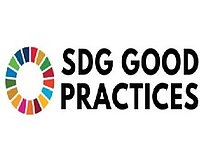
© UN DESA
|
|
Second Open Call for SDG Good Practices, Success Stories and Lessons Learned in the Implementation of the 2030 Agenda
The United Nations Department of Economic and Social Affairs (UN DESA) has launched its second call to collect good practices, success stories and lessons learned through the implementation of the 2030 Agenda. Open for submission from 2nd of December, 2020 to 28th of February, 2021, the call aims to collect breakthroughs, success stories and best practices with a global impact in order to make international expertise better accessible, especially in light of recovery efforts from the COVID-19 pandemic. The results obtained via the first call for the time period of 2018 – 2019 have been made available online in form of an online database and features more than 500 good practices.
|
| |
|
|
| |
|
|
|
|
|
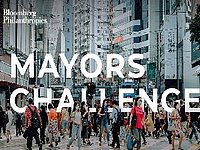
© Bloomberg Cities Network/ Johns Hopkins University
|
|
Bloomberg’s Mayors Challenge Ready to Finance 50 Leading Urban Innovations
The Global Mayors Challenge 2021 calls on cities with more than 100,000 residents to share their most innovative ideas and solutions to build back better. In search of urban excellence in form of local solutions, the initiative will select 50 champion cities and provide them with access to expert support to upscale their ideas for urban innovation. In addition, 15 cities will be selected for the grand prize of 1 million USD each. Applications can be submitted until the 21st of March, 2021.
|
| |
|
|
| |
|
|
|
|
|
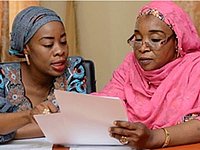
© Women’s Refugee Commission (WRC)
|
|
New Research Project – Looking for Important Snippets to Respond to Crises and Forced Displacement
The Women’s Refugee Commission (WCR) is currently conducting an online questionnaire to gather experience from humanitarian and non-humanitarian actors involved in the response to crises and forced displacement in order to create more equitable and inclusive emergency response systems in future. Using the Active Sensemaking Methodology, the WCR wants participants to share brief “snippets” of their experience and contributions, while for example working with affected communities at the local governance level.
|
| |
|
|
| |
|
|
|
|
|
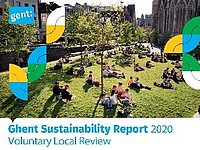
© City of Ghent
|
|
City of Ghent Published its First SDG Voluntary Local Review
As an important ambassador for the Sustainable Development Goals (SDGs) in Flanders, the City of Ghent recently published its first SDG Voluntary Local Review (VLR) to create a benchmark report for all 17 SDGs and their implementation status in 2020 and to set the tone for future VLRs. Serving as a starting point for upcoming exchanges, the report leaves room for urban stakeholders, consultation forums and advisory boards of the city to select sustainable projects to be spotlighted in the upcoming VLRs for 2021, 2022 and 2023. The VLRs will review the SDG’s implementation status and projects thematically starting with “People” before moving on to “Prosperity” and “Planet” in the upcoming years.
|
| |
|
|
| |
|
|
|
|
|
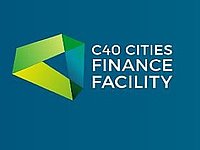
© C40 CFF
|
|
C40 Cities Finance Facility (CFF) Wins a United Nations Global Climate Action Award 2020
The UN Climate Change’s Momentum for Change initiative has announced the winners of the United Nations Global Climate Action Award. CFF’s commitment and experience regarding “Financing for Climate Friendly Investment” was recognized as one the best examples for people-led action to combat climate change on a global scale. With is projects CFF assists cities in addressing the effects of climate change through innovative approaches.
|
| |
|
|
| |
|
|
|
|
|

© CCRE-CEMR
|
|
EU-Member States Endorse New Agendas for Territorial and Urban Development
Following ministerial meetings form 30th of November to 1st of December Europe’s national ministers underscored the importance of a territorial approach in achieving urban sustainability through the adaptation of the Territorial Agenda 2030 and the new Leipzig Charter on Sustainable Cities. At the meetings member states identified territorial development, cohesive political reforms and the inclusion of Local and Regional Governments as priorities for the current national recovery strategies and in building resilience for future challenges.
|
| |
|
|
| |
|
|
|
|
|
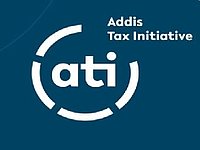
© Addis Tax Initiative (ATI)
|
|
The Addis Tax Initiative: Enhancing Domestic Revenue Mobilisation (DRM) to Achieve the SDGs
Initiated in 2015 by the governments of Germany, the Netherlands, the United Kingdom and the United States, the Addis Tax Initiative (ATI) is a multi-stakeholder partnership geared toward improving domestic revenue mobilisation (DRM) in partner countries to make additional financing available for SDG implementation. To carve out the unique benefits created by the initiative, ATI has recently published a new video to present their approach.
|
| |
|
|
| |
|
|
|
|
|
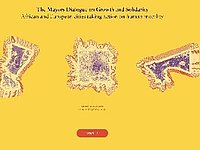
© Overseas Development Institute (ODI)
|
|
Visualising the Data of the 18 Cities Participating in the Mayors Dialogue
The city-led initiative of “The Mayors Dialogue” unites African and European cities dedicated to improving the lives of urban residents by providing new and practical solutions for human mobility. Spearheaded by the cities of Freetown and Milan, the Dialogue is supported by the Overseas Development Institute (ODI), the Mayors Migration Council (MMC), the Robert Bosch Stiftung and the Open Society Foundations (OSF). Besides providing access to publications, blogs and infographics, ODI’s latest data visualization project uses data from all 18 participating cities to analyse their growth as well as their solidarity for supporting migrants.
|
| |
|
|
| |
|
|
|
|
|

© Creative Commons
|
|
Nestante – An Award-Winning App for Peaceful Local Development
Awarded the Innovation Prize by the United Nations Development Program in Brazil in 2019, the Nestante app provides young people from rural areas lacking access to public services and formal employment opportunities with a platform to become involved in their community by sharing problems and developing innovative solutions for peaceful coexistence online. Developed by the Instituto Comeradio in 2018 the app is part of their partner organization’s “Brücke · Le pont” vocational training and promoting labour-market integration programme.
|
| |
|
|
| |
|
|
|
|
|
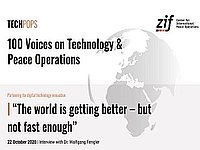
© zif – Center for International Peace Operations
|
|
"The World Is Getting Better – But Not Fast Enough" – An Interview with Dr. Wolfgang Fengler
In his interview with the Center for International Peace Operations, Dr. Wolfgang Fengler, the World Bank's Lead Economist and Sector Leader for Southern Africa, explains the necessity for better data embedment when measuring progress regarding the implementation of the Sustainable Development Goals (SDGs). He refers to the World Poverty Clock as such an example. He goes on to explain that besides poverty, health and gender most SDGs cannot be measured in the same accurate manner as no consensus on a uniform definition has been reached and data is not always available.
|
| |
|
|
| |
|
|
|
|
|
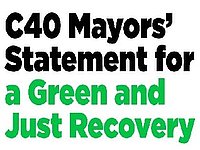
© C40 Cities
|
|
C40 Global Mayors COVID-19 Recovery Task Force Statement on a Green Recovery
Stating that climate action, COVID-19 recovery and stimulus funding have to go hand in hand, the C40 mayors have recently published new research on the advantages of a green and just recovery to create more jobs and deliver better in the field of economy and health. Emphasising the need for fast and decisive action in form of a green stimulus package, the eleven mayors conclude that climate-sensitive recovery actions are needed before the upcoming COP26 to ensure a steady move in the right direction.
|
| |
|
|
| |
|
|
|
|
|
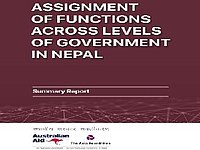
© The Asia Foundation
|
|
The Asia Foundation and Australian Aid Publish Comprehensive Study on the Assignment of Functions Across Levels of Government in Nepal
Based on research derived from field studies conducted with designated local and provincial governments in Nepal this report examines the progress of Nepal’s decentralisation process since 2015. The report sheds light on existing contradictions and responsibility overlaps between government spheres, specifically in major sectors like revenue, health and education. By carving out the contradictions in competences exhibited in federal laws and role allocations, this report represents an important resource to improve the decentralisation process across all levels of government.
|
| |
|
|
| |
|
|
|
|
|

© CCRE-CEMR
|
|
CEMR’s 70th Anniversary
When: 28 January 2021, 02:30 pm – 05:00 pm CET
Where: Online
Apply by: Registration open
CEMR is turning 70! To commemorate this occasion CEMR is inviting European practitioners such as mayors, local and regional leaders, European officials, youth organisations and civil society to partake in interactive virtual exchanges, TED-style talks and more to evaluate its past achievements at the local and regional level and discuss its vision for the future.
|
| |
|
|
| |
|
|
|
|
|

© hopin
|
|
Danube Governance Conference
When: 28 January
Where: Online
Apply by: Registration open
Part of the Austrian Development Agency’s programme “Building Administrative Capacities in the Danube Region” (BACID), the Danube Governance Conference will provide regional stakeholders, EU representatives and international organizations supporting European integration and public administration reforms in the Western Balkans and the Republic of Moldova with the opportunity for exchange to improve governance in the region and discuss challenges, achievements and networking opportunities.
|
| |
|
|
| |
|
|
|
|
|
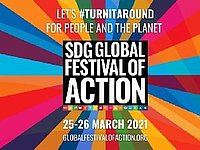
© UN SDG ACTION CAMPAIGN
|
|
SDG Global Festival of Action
When: 25 March 2021 – 26 March 2021
Where: Online
Apply by: Pre-registration open
Cancelled in 2020 due to COVID-19, the fifth edition of the UN SDG Festival of Action will be held virtually this year. The festival unites diverse stakeholders from the global community in order to find new, inspiring ways to mobilise and act for the Sustainable Development Goals (SDGs).
|
| |
|
|
| |
|
|
|
|
|
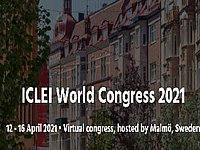
© ICLEI
|
|
ICLEI World Congress 2021
When: 12 April 2021 – 16 April 2021
Where: Online
Apply by: Registration of Interest open
The ICLEI World Congress 2021, hosted by the Swedish city of Malmö, will take place online. Held every three years, the congress is dedicated to finding pathways toward sustainability by bringing together local, regional and national governments, international agencies, representatives of the private sector, researchers and other global practitioners. By showcasing local and regional actions on sustainable urban development, the congress hopes to guide the global sustainable development agenda and provide a platform for discussion.
|
| |
|
|
| |
|
|
|
|
|

© The World Bank Group
|
|
E-Learning Course on Smart City (Facilitated)
When: 01 February 2021 - 05 March 2021
Where: Online
Apply by: Registration open
|
| |
|
|
| |
|
|
|
|
|
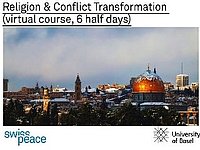
© Schweizerische Friedensstiftung - swisspeace
|
|
Religion & Conflict Transformation
When: 22 March 2021 - 30 March 2021
Where: Online
Apply by: 31 January 2021
|
| |
|
|
| |
|
|
|
|
|
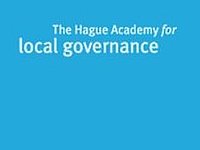
© The Hague Academy for Local Governance
|
|
Local Economic Development
When: 12 April 2021 – 12 July 2021
Where: Online
Apply by: 19 March 2021
|
| |
|
|
| |
|
|
|
|
|
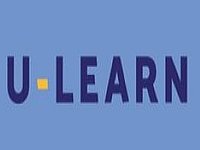
© U-Lead
|
|
U-LEARN School of Decentralisation
When: Self-Paced
Where: Online
Apply by: Registration open
|
| |
|
|
| |
|
|
|
|
|
Knowledge
|
|
|
Fragility ● Post-conflict Settings ● Migration
|
|
|
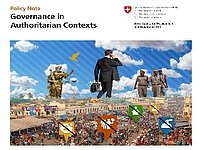
© Swiss Agency for Development and Cooperation (SDC)
|
|
Policy Note: Governance in Authoritarian Contexts
Published by the Swiss Development Cooperation (SDC) this policy note examines lessons learned from development cooperation and engagement in authoritarian contexts. Drawing on SDC’s own project experiences with working in authoritarian regimes, the policy note carves out recommendations for donors as well as their partners working in similar circumstances. Moreover, it includes findings from learning journeys on shrinking space for civil society (2018/19), on authoritarian regimes (2019/20) and on governance in fragile contexts (2018/19), making it a comprehensive resource combining both practical experience with academic research.
Publisher: Swiss Agency for Development and Cooperation SDC
Publication Date: 2020
Copyright: Swiss Agency for Development and Cooperation SDC
|
| |
|
|
| |
|
|
|
|
|
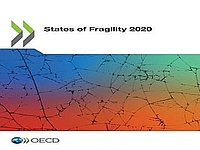
© OECD
|
|
States of Fragility 2020
Tailored to the needs of policy makers and practitioners, the States of Fragility 2020 report provides insights into the universal phenomenon of fragility in states and societies in the context of SDG implementation and financing. In addition, it examines how communities can invest in resilience, peacebuilding and conflict prevention. By drawing on lessons learned through case studies the report connects policy to practice and highlights effective approaches for fragile working conditions to build more just and inclusive societies that leave no one behind.
Publisher: OECD
Publication Date: 2020
Copyright: OECD
|
| |
|
|
| |
|
|
|
|
|
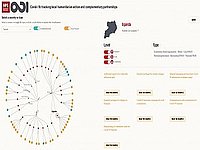
© Humanitarian Policy Group (HPG)/ Overseas Development Institute (ODI)
|
|
COVID-19 and Local Humanitarian Action: Five Emerging Trends
Recognising the importance of tracking change in real-time, this new mapping tool by the Humanitarian Policy Group (HPG) documents how change towards more local humanitarian action and leadership triggered by COVID-19 can be tracked through the review of publicly available resources. Up to date the data of 30 countries has been integrated into the tool. Five notable key trends have been identified.
Author: Alexandra Spencer
Publication Date: 2020
Copyright: Humanitarian Policy Group (HPG) / Overseas Development Institute (ODI)
|
| |
|
|
| |
|
|
|
|
|
Fiscal Decentralisation ● Local Finance
|
|
|
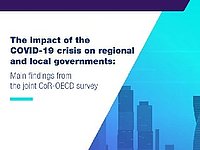
© OECD
|
|
The Impact of the COVID-19 Crisis on Regional and Local Governments
This brief sums up the key findings of the CoR-OECD-19 Survey, titled “The impact of the COVID-19 crisis on regional and local governments: governance, finance and recovery plans”. Conducted in June and July 2020 among representatives of subnational governments of the European Union, the online-survey received answers from 24 countries encompassing 300 subnational governments. The brief evaluates the data received by structuring it according to the overall financial impact witnessed by subnational governments as well as exit strategies and socio-economic recovery plans. The focus of the brief is on identifying how and if the COVID-19 crisis is reshaping regional development policy priorities.
Publisher: OECD
Publication Date: 2020
Copyright: OECD
|
| |
|
|
| |
|
|
|
|
|
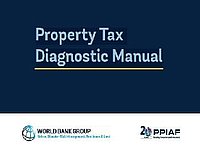
© The World Bank Group
|
|
The Property Tax Diagnostic Manual
The Property Tax Diagnostic Manual provides officials and development partners with guidance on how to analyse immovable property tax systems and develop reform strategies in low- and middle-income countries. It includes a practical analytical framework, extensive discussion on policy and administrative options and considerations for the design of a strategic implementation plan, as well as draft TORs and illustrative questions to help guide such a diagnostic exercise. The manual draws on extensive international experience and includes four separate case studies for the Philippines, India, Pakistan and Zanzibar.
Authors: Roy Kelly, Roland White, Aanchal Anand
Publication Date: 2020
Copyright: The World Bank Group
|
| |
|
|
| |
|
|
|
|
|
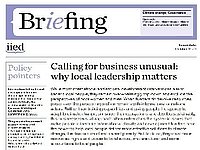
© IIED
|
|
Good Climate Finance Guide: Lessons for Strengthening Devolved Climate Finance
Recognising the importance of climate finance for marginalised communities impacted by climate change, this paper presents lessons learned and outlines recommendations for better support to local actors. Looking into international climate funds and development financing mechanisms like the Green Climate Fund and UNCDF’s Local Climate Adaptive Living Facility (LoCAL) as well as case studies from Asia, the Caribbean and Latin-America, the report identifies “good climate finance” approaches. Based on this assessment the report provides recommendations on how locally led solutions can be supported through the effective delivery of climate finance and addresses how local actors can access funds to implement their own regional-specific strategies.
Authors: Marek Soanes, Sejal Patel, Feisal Rahman, Barry Smith, Dave Steinbach
Publication Date: 2020
Copyright: IIED
|
| |
|
|
| |
|
|
|
|
|
2030 Agenda ● Localising the SDGs
|
|
|
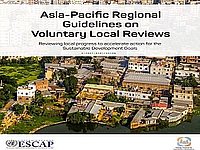
© United Nations (UN)
|
|
Asia-Pacific Regional Guidelines on Voluntary Local Reviews
Developed in cooperation with the Penang Platform for Sustainable Urbanization, the Asia-Pacific Regional Guidelines on Voluntary Local Reviews (VLRs) aim to provide Local and Regional Governments with tools, checklists and templates for reviewing local progress against the SDGs. In addition, the guidelines offer context-specific background on the 2030 Agenda for the region and pinpoint entry points to conduct a VLR. By providing these templates and formats to report in a cohesive manner the guidelines aim to formalise the VLR process.
Publisher: United Nations ESCAP
Publication Date: 2020
Copyright: United Nations
|
| |
|
|
| |
|
|
|
|
|
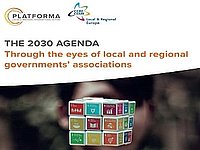
© PLATFORMA/ CCRE-CEMR
|
|
THE 2030 AGENDA - Through the Eyes of Local and Regional Governments’ Associations
Conducted as part of PLATFORMA’s workshop at the United Nations’ 2020 High Level Political Forum on Sustainable Development (HLPF) on “Localising the Sustainable Development Goals” this survey analyses the progress made by European regions, municipalities and their national associations regarding SDG implementation. Emphasising the local perspective in a multi-stakeholder context, this study presents a follow up to CEMR and PLATFORMA’s previous studies on “How local & regional government associations bring the SDGs to life” (2019) and the “Sustainable Development Goals – How Europe’s towns and regions are taking the lead” (2018).
Publisher: Platforma, CEMR
Publication Date: 2020
Copyright: Platforma, CEMR
|
| |
|
|
| |
|
|
|
|
|
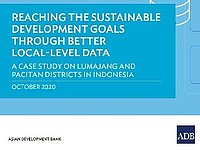
© Asian Development Bank
|
|
Reaching the Sustainable Development Goals through Better Local-Level Data: A Case Study of Lumajang and Pacitan Districts in Indonesia
By providing the districts of Lumajang and Pacitan in East Java, Indonesia, with data to trace Local Government and local stakeholder contributions toward SDG localisation, ADB has assisted these regions with monitoring, implementing and raising awareness for SDG implementation. By filling this data gap ADB aims to harmonise local action and trace its positive impact for sustainable development. The referenced case study outlines ADB’s approach.
Publisher: Asian Development Bank
Publication Date: 2020
Copyright: Asian Development Bank
|
| |
|
|
| |
|
|
|
|
|
Urban and Territorial Governance
|
|
|
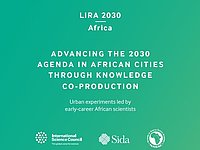
© International Science Council (ISC)
|
|
Advancing the 2030 Agenda in African Cities Through Knowledge Co-Production
Implemented as part of the Leading Integrated Research for Agenda 2030 in Africa (LIRA 2030 Africa), this report sheds light on current collaborative transdisciplinary research, carried out between science, policy and society in different African cities. Highlighting the means and processes behind the co-production of knowledge on sustainable urban development in Africa, the report provides recommendations for the creation of enabling environments and for capacity-building for African scientists in this area. It underscores the need to invest in transdisciplinary urban research science and the cooperation of scientists, policy actors, urban practitioners, communities and the private sector for future knowledge production.
Publisher: International Science Council (ISC)
Publication Date: 2020
Copyright: International Science Council (ISC)
|
| |
|
|
| |
|
|
|
|
|
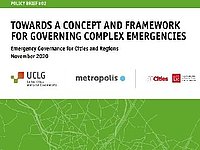
© Emergency Governance Initiative (EGI)
|
|
Towards a Concept and Framework for Governing Complex Emergencies - Emergency Governance for Cities and Regions
Launched in Mai 2020 by UCLG, Metropolis and the London School of Economics – LSE Cities, the Emergency Governance Initiative for Cities and Regions (EGI) has published its second policy brief in the field of emergency governance. By introducing a preliminary concept and framework, the policy brief analyses how to best govern during complex emergencies, while taking the needs of regional governments and cities into consideration. By defining specific emergency cases and relating them to grand global challenges, the policy brief is able to discuss relevant governance principles, structures, processes and domains before adapting them to present local and regional challenges.
Publisher: Emergency Governance Initiative (EGI)
Publication Date: 2020
Copyright: Emergency Governance Initiative (EGI)
|
| |
|
|
| |
|
|
|
|
|
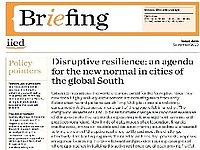
© IIED
|
|
Disruptive Resilience: An Agenda for the New Normal in Cities of the Global South
Crises, like the current global health pandemic as well as climate change, require “disruptive resilience” in urban governance sectors such as finance, public service delivery and data management. Throughout this briefing its authors highlight the need for an adjustment of existing risk management systems and practices through innovative approaches in order to effectively meet new challenges. Besides outlining numerous ways of transition from business as usual to a new concept of resilience, this brief showcases successful practices already taking place in the global South.
Authors: Aditya V. Bahadur, David Dodman
Publication Date: 2020
Copyright: IIED
|
| |
|
|
| |
|
|
|
|
| |

|
|
|
| |
|
|
| |
For access to even more inspiring publications on
1. DLG in Contexts of Fragility, Migration and Post-Conflict Settings,
2. Fiscal Decentralisation and Local Finance,
3. Localising the 2030 Agenda or
4. Urban and Territorial Governance
make sure to visit the regularly updated "Knowledge Section" of our DeLoG Website!
|
|
|













































